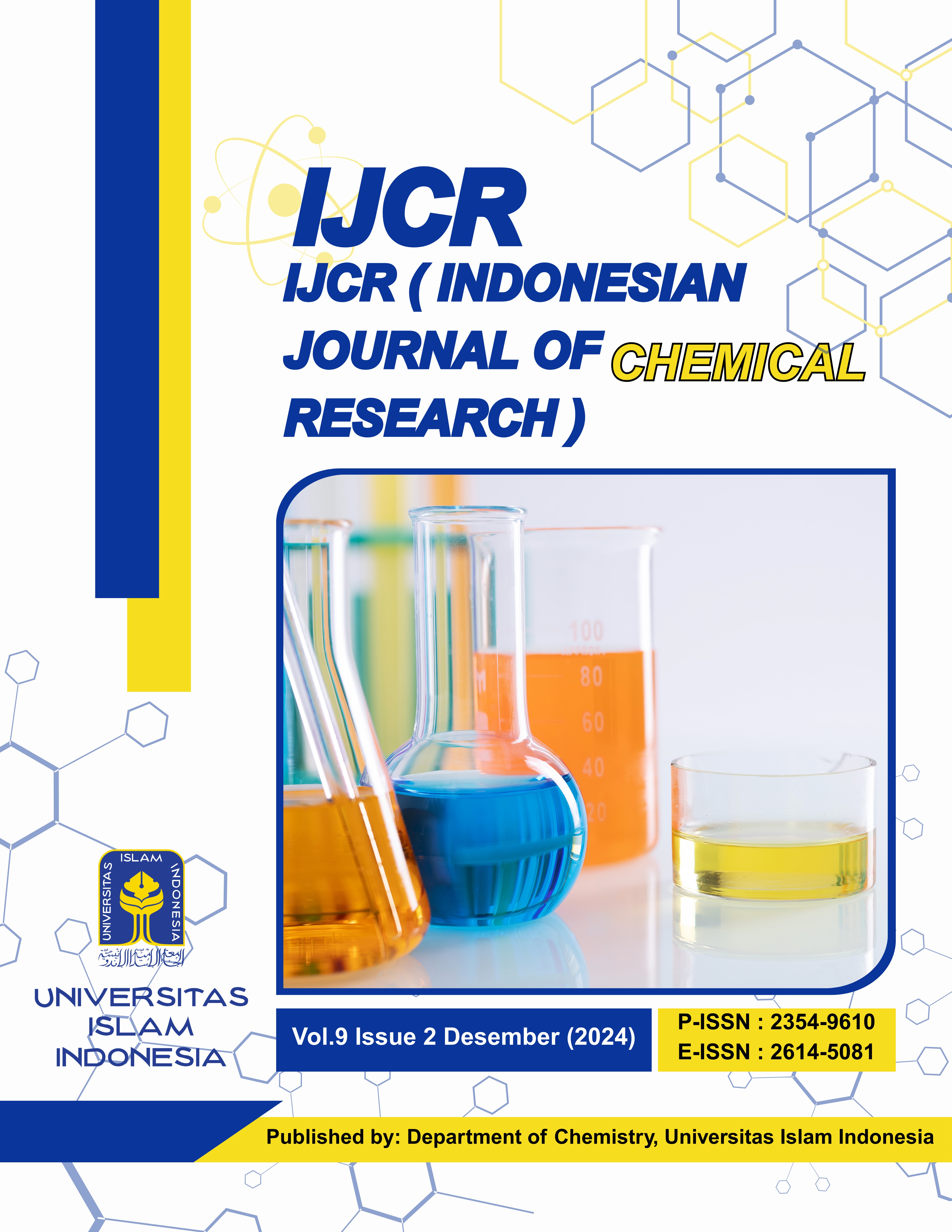Main Article Content
Abstract
Palm kernel shell (PKS), a byproduct accounting for up to 60% of palm oil production, is often used solely as fuel. However, due to its silica content, PKS can also function as an adsorbent. This study aimed to evaluate the impact of delignification on the quality of PKS as an adsorbent, specifically its ability to adsorb free fatty acids from used palm cooking oil. Delignification was performed using a microwave-alkali (Mw-A) method. Initially, PKS was cleaned, ground into powder, and sieved to 25 mesh. The powder was then delignified using Mw-A before activation with NaOH concentrations of 10%, 20%, and 30%. The temperature settings were 70⁰C, 80⁰C, and 90⁰C, with durations of 30, 35, and 40 minutes. The delignified PKS was carbonized at 400⁰C for 2 hours to produce the adsorbent. The adsorption capacity of each adsorbent was tested on free fatty acids in used palm cooking oil. Results indicated that the Mw-A assisted delignification significantly enhanced the adsorption efficiency, achieving a 55% adsorption capacity at 30% NaOH concentration, 90⁰C temperature, and 35 minutes. In comparison, PKS without Mw-A assisted delignification adsorbed only 32% of free fatty acids. It was showed that the adsorption kinetics belong to pseudo-first order reaction. Thus, delignification proved to be an effective pretreatment method to enhance PKS's adsorption capacity.
Article Details
Authors who publish with this journal agree to the following terms:
- Authors retain copyright and grant the journal right of first publication with the work simultaneously licensed under a Creative Commons Attribution License that allows others to share the work with an acknowledgment of the work's authorship and initial publication in this journal.
- Authors are able to enter into separate, additional contractual arrangements for the non-exclusive distribution of the journal's published version of the work (e.g., post it to an institutional repository or publish it in a book), with an acknowledgment of its initial publication in this journal.
- Authors are permitted and encouraged to post their work online (e.g., in institutional repositories or on their website) prior to and during the submission process, as it can lead to productive exchanges, as well as earlier and greater citation of published work (See The Effect of Open Access).
